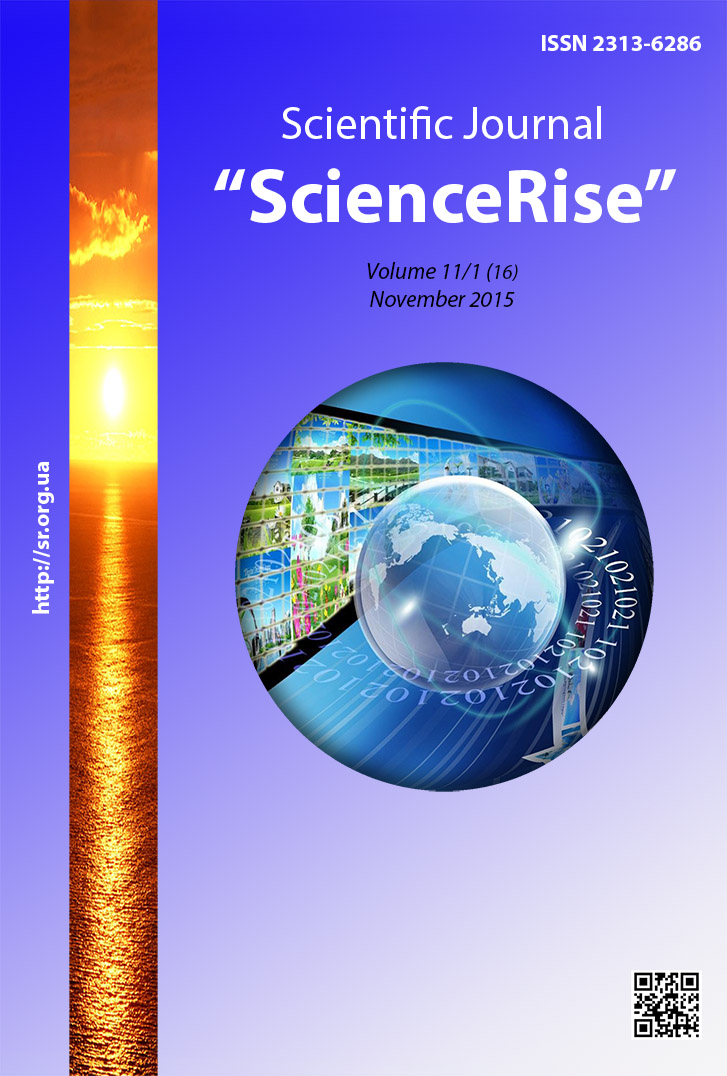The emotional component of professional intelligence of future social sphere specialists
DOI:
https://doi.org/10.15587/2313-8416.2015.54036Keywords:
professional intelligence, professional intelligence of future social sphere specialists, emotional intelligenceAbstract
The emotional component of professional intelligence of future social sphere specialists is studied. Importance of emotional area in professional activities of social workers is analyses. Specifics of manifestation of emotional features (emotional intelligence, emotional communication barriers, emotional reaction type, alexithymia) of the students, who are future social sphere professionals are determined. Psychological conditions emotional area developing as a component of professional intelligence of future social sphere professionals are detected.
References
Pinchuk, I. M., Tolstouhova, S. V. (Eds.) (2000). Socialna robota z ditmy ta moloddju: problemy, poshuky, perspektyvy. [Social work with children and youth: problems, searches, perspectives] (Vol. 1). Kyiv: UDCSSM, 276.
Melnychuk, O. B. (2014). Rol emocij v profesijnij dijalnosti fahivciv socialnoi sfery [The role of emotions in the professional experts of social sphere]. 2014 Naukovo-praktychna konferencija. Harkiv, 58–62.
Rubinshtejn, S. L.; Viljunasa, V. K., Gippenrejter, Ju. B. (Eds.) (1984). Jemocii. [Emotions]. Psihologija jemocij. Teksty. Moscow: MG, 152–161.
Leontev, A. N.; Viljunasa, V. K., Gippenrejter, Ju. B. (Eds.) (1984). Potrebnosti, motivy i jemocii. [Needs, motives and emotions]. Psihologija jemocij. Teksty. Moscow: MGU, 162–170.
Anohin, P. K.; Viljunasa, V. K., Gippenrejter, Ju. B. (Eds.) (1984). Jemocii. [Emotions]. Psihologija jemocij. Teksty. Moscow: MGU, 172–177.
Vygotskij, L. S. (2005). Soznanie kak problema psihologii povedenija. [Consciousness as a problem of the psychology of behavior]. Psihologija razvitija cheloveka. Moskva: Izd-vo Smysl; Izd-vo Jeksmo, 1136.
Tihomirov, O. K. (1972). Jemocii v strukture myslitel'noj dejatel'nosti. [Emotions in the structure of mental activity]. Tezisy dokladov k XX mezhdunarodnomu psihologicheskomu kongressu. Moscow, 183–186.
Salovey, P., Mayer, J. D. (1990). Emotional intelligence. Imagination, Cognition, and Personality, 9, 185–211.
Mayer, J. D., Salovey, P., Caruso, D. R., Sitarenios, G. (2001). Emotional intelligence as a standard intelligence. Emotion, 1 (3), 232–242. doi: 10.1037/1528-3542.1.3.232
Caruso, D. R., Mayer, J. D., Salovey, P. (2002). Relation of an Ability Measure of Emotional Intelligence to Personality. Journal of Personality Assessment, 79 (2), 306–320. doi: 10.1207/s15327752jpa7902_12
Goleman, D. (1995). Emotional intelligence. New York: Bantam Books.
Bar-On, R. (1997). The Bar-On Emotional Quotient Inventory (EQ-i): Technical Manual. Toronto: Multi-Health Systems.
Sternberg, R. Dzh,. Forsajt, Dzh. B., Hedland, Dzh. (2002). Prakticheskij intellekt. [Practical intelligence]. SPb.: Piter, 272.
Mayer, J. D., Caruso, D. R., Salovey, P. (1999). Emotional intelligence meets traditional standards for an intelligence. Intelligence, 27 (4), 267–298. doi: 10.1016/s0160-2896(99)00016-1
Petrides, K. V., Furnham, A. (2000). On the dimensional structure of emotional intelligence. Personality and Individual Differences, 29 (2), 313–320. doi: 10.1016/s0191-8869(99)00195-6
Ljusin, D. V. (1999). Sposobnost k ponimaniju jemocij: psihometricheskij i kognitivnyj aspekty [The ability to understand the emotions: a psychometric and cognitive aspects]. 1999 Mezhdunarodna nauchno-prakticheskaja konferencija, Moscow, 25–35.
Ljusin, D. V. (2004). Sovremennye predstavlenija ob jemocionalnom intellekte. [Modern concepts of emotional intelligence]. Socialnyj intellekt: Teorija, izmerenie, issledovanija. M.: Institut psihologii RAN, 29–36.
Fetiskin, N. P., Kozlov, V. V., Manulov, G. M. (2002). Socialno-psihologicheskaja diagnostika razvitija lichnosti i malyh grupp [Socio-psychological diagnosis of personality development and small groups]. Moscow: Izd-vo Instituta Psihoterapii, 490.
Rajgorodskij, D. Ja. (Ed.) (2002). Prakticheskaja psihodiagnostika. Metodiki i testy. [Practical psychodiagnostics. Procedures and tests]. Samara: «BAHRAH-M», 672.
Grys, A. (2013). Teorija i praktyka pidgotovky psyhologiv do roboty z socialno dezadaptovanymy nepovnolitnimy. [Theory and practice of training psychologists to work with socially maladjusted juveniles: monograph]. Kyiv: Geoprynt, 280.
Nikulina, D. S. (2005). Psihologo-pedagogicheskie uslovija preodolenija aleksitimii u studentov vuzov [Psycho-pedagogical conditions of overcoming of alexithymia among university students]. Taganrog. gos. radiotehn. un-t. Stavropol, 20.
Downloads
Published
Issue
Section
License
Copyright (c) 2015 Оксана Богданівна Мельничук

This work is licensed under a Creative Commons Attribution 4.0 International License.
Our journal abides by the Creative Commons CC BY copyright rights and permissions for open access journals.
Authors, who are published in this journal, agree to the following conditions:
1. The authors reserve the right to authorship of the work and pass the first publication right of this work to the journal under the terms of a Creative Commons CC BY, which allows others to freely distribute the published research with the obligatory reference to the authors of the original work and the first publication of the work in this journal.
2. The authors have the right to conclude separate supplement agreements that relate to non-exclusive work distribution in the form in which it has been published by the journal (for example, to upload the work to the online storage of the journal or publish it as part of a monograph), provided that the reference to the first publication of the work in this journal is included.

